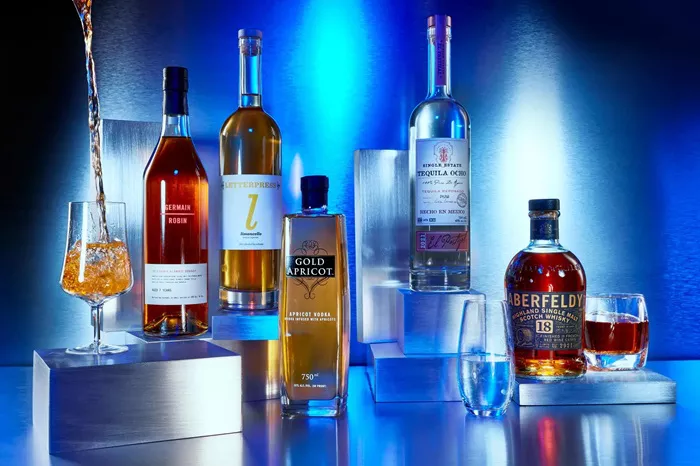In the world of alcoholic beverages, few topics ignite as much debate and intrigue as the categorization of whiskey. Is it a wine, with its rich complexities and nuanced flavors? Or is it more accurately classified as a spirit, given its production process and chemical composition? This question has puzzled connoisseurs and novices alike, leading to a deep exploration of whiskey’s identity within the broader spectrum of libations.
Defining Whiskey: A Complex Elixir
To understand whether whiskey aligns more closely with wine or spirit, it’s essential to delve into its composition and production methods. Whiskey, at its core, is a distilled alcoholic beverage derived from fermented grain mash. This mash typically includes barley, corn, rye, and wheat, each lending distinct characteristics to the final product. Through a meticulous process of fermentation, distillation, and aging in wooden barrels, whiskey achieves its signature aroma, flavor profile, and texture.
The Distillation Process: Spirituous Origins
One of the primary arguments for classifying whiskey as a spirit stems from its production process. Distillation, a key step in whiskey-making, involves heating the fermented grain mash to create vapor, which is then condensed back into liquid form. This process serves to concentrate the alcohol content while removing impurities, resulting in a potent and refined spirit. Unlike wine, which undergoes fermentation without distillation, whiskey’s journey through the still imparts a distinctive character that aligns more closely with other spirits like vodka, gin, and rum.
Aging and Maturation: Echoes of Wine’s Influence
Despite its spirituous origins, whiskey’s transformation doesn’t end with distillation. Aging and maturation play a pivotal role in shaping its final flavor profile, drawing parallels to the nuanced evolution of wine. As whiskey rests in oak barrels, it interacts with the wood, absorbing compounds that contribute to its color, taste, and aroma. This aging process, reminiscent of wine’s time in barrels, imparts complexity and depth to whiskey, blurring the lines between the two categories.
Terroir and Complexity: Bridging the Divide
In the debate over whether whiskey is a wine or spirit, the concept of terroir emerges as a unifying factor. Terroir refers to the environmental factors—such as soil composition, climate, and topography—that influence the character of agricultural products like grapes and grains. While whiskey’s production process aligns more closely with spirits, its reliance on specific grains and regional variations introduces elements of terroir reminiscent of wine-making. From the peaty notes of Islay Scotch to the sweet undertones of Kentucky bourbon, whiskey’s diverse expressions reflect the unique terroirs from which they originate, blurring the boundaries between wine and spirit.
Cultural Significance: A Tapestry of Traditions
Beyond its chemical composition and production methods, whiskey’s cultural significance provides further insight into its classification. Throughout history, whiskey has been intertwined with rituals, customs, and traditions that bear resemblance to those surrounding wine. From the ceremonial toasts of Scotch whisky tastings to the meticulous blending techniques employed by master distillers, whiskey’s cultural heritage mirrors the reverence and sophistication often associated with wine culture. In this context, whiskey transcends its status as a mere spirit, embodying the rich tapestry of human experiences and traditions that define both wine and spirits alike.
Culinary Versatility: Pairing Possibilities
An exploration of whether whiskey is a wine or spirit wouldn’t be complete without considering its culinary applications. While wine has long been celebrated for its ability to complement a wide range of dishes, whiskey’s versatility in pairing with food has gained recognition in recent years. From savory dishes like grilled meats and cheeses to decadent desserts infused with whiskey, its complex flavors and aromas elevate culinary experiences in a manner reminiscent of fine wines. Whether sipped neat alongside a charcuterie board or incorporated into gourmet recipes, whiskey’s culinary allure blurs the boundaries between wine and spirit, offering endless pairing possibilities for epicurean enthusiasts.
The Art of Tasting: Sensory Exploration
At the heart of the debate surrounding whiskey’s classification lies the sensory experience of tasting—an art form that transcends categorization. Much like wine enthusiasts discern the subtle nuances of varietals and vintages, whiskey aficionados engage in sensory exploration to uncover the intricacies of different expressions. Through nosing and tasting, individuals discern notes of caramel, vanilla, oak, and spice, delving into a realm where distinctions between wine and spirit become increasingly nuanced. In this sensory journey, the boundaries between whiskey as a wine or spirit blur, giving rise to a profound appreciation for its complexity and diversity.
Conclusion: A Fusion of Traditions and Innovation
In the ongoing discourse over whether whiskey is a wine or spirit, the answer may ultimately lie in embracing the interplay between tradition and innovation. While whiskey’s production methods align with those of spirits, its cultural significance, culinary versatility, and sensory allure echo the qualities that define wine. Rather than fitting neatly into a single category, whiskey transcends classification, embodying a fusion of traditions and innovation that captivates enthusiasts around the globe. Whether enjoyed neat, on the rocks, or as a component in cocktails, whiskey continues to defy categorization, inviting exploration and appreciation from connoisseurs and novices alike.
In Conclusion
The question of whether whiskey is a wine or spirit is a multifaceted inquiry that delves into the realms of chemistry, culture, and culinary arts. While its production methods align more closely with spirits, whiskey’s terroir, cultural significance, and sensory complexity draw parallels to the world of wine. Ultimately, the debate serves as a testament to whiskey’s enduring allure—an elixir that defies categorization and continues to captivate enthusiasts across the globe.


